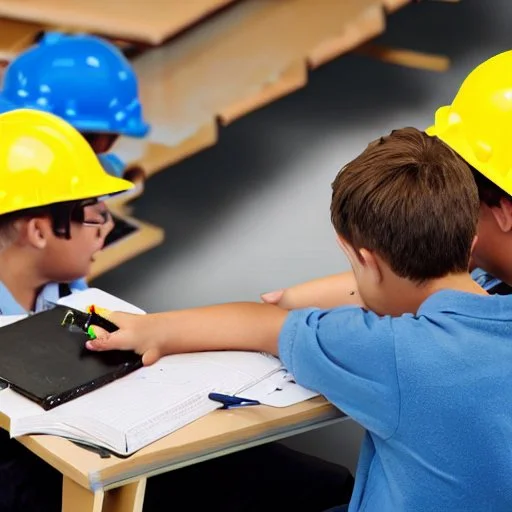July 19, 2025

Ensuring electrical safety in schools is extremely important. All students, teachers, and maintenance staff must be aware of the potential dangers associated with electricity. Schools must comply with electrical safety regulations to protect everyone from harm and follow local laws. Additionally, schools must provide training to staff on electrical safety and perform regular inspections of their electrical systems to prevent accidents and issues. In this article, we will discuss the different aspects of ensuring electrical safety in schools and provide recommendations for doing so.
Electrical accidents in schools can have a profound impact on the lives of students, staff, and faculty, making it crucial to improve electrical safety measures. One of the biggest concerns for school safety is electrical fires. To minimize the risk of electrical fires in schools, it is necessary to take preventive measures such as regular inspections and maintenance of wiring systems to ensure that all wiring is up-to-date and compliant with safety standards. Outdated wiring systems can pose a significant risk due to their tendency to overheat or have faulty connections, which can result in sparks or shocks. Regular testing of outlets and other components should also be carried out to identify any potential issues that may arise. Furthermore, fire extinguishers should always be accessible on school premises in case of an emergency. By taking such steps, schools can ensure the electrical safety of their students and staff.
Ensuring compliance with electrical safety regulations is crucial to creating a safe learning environment in schools. School officials and staff must ensure that power outlets, extension cords, and other electrical equipment comply with local building codes and standards. These regulations should cover outlet requirements, placement of outlets near water sources, proper wiring, insulation, and any additional safety measures needed to protect the school community from potential hazards. Personnel responsible for maintaining electrical systems in the school must also have a thorough understanding of all applicable laws and regulations.
In addition to following local building codes and standards, schools must implement procedures that promote safe electricity usage. This includes ensuring that students and others who may not be familiar with electrical equipment use power outlets and extension cords properly. Schools must also monitor their electrical equipment at all times to prevent serious issues such as fires or electric shocks.
By incorporating these safety protocols into their regular routines, schools can minimize the risk of accidents involving electricity while providing a secure learning environment for everyone involved.
To ensure a safe learning environment, schools in Australia should make sure that their staff have the necessary knowledge and skills to handle electricity safely. This includes providing electrical safety training to help employees conduct risk assessments, prevent short circuits, and identify potential hazards in the school environment. The training also covers the use of safety equipment and compliance with electrical codes and regulations to protect students and teachers from harm. Proper use of electricity in daily tasks is also emphasised to reduce the risk of dangerous incidents. By ensuring that all staff receive adequate electrical safety training, schools can create a secure learning space for everyone.
Performing routine electrical safety inspections is crucial for protecting students and staff from potential harm caused by electrical hazards. It is important to conduct these inspections to identify any problems with critical equipment and to assess outdated or overloaded wiring. During these inspections, electricians can also examine fire alarm systems, emergency lighting, and other equipment that may pose a safety risk if not properly maintained. Any issues found can be repaired before they become significant problems. To ensure that all electrical components are safe at all times, it is recommended that all school buildings have an inspection schedule in place. By regularly performing these inspections, schools can prevent accidents related to faulty electrical equipment or wiring and provide a safer learning environment for students and faculty.
Adopting the best practices for electrical safety is crucial to prevent accidents and maintain a secure learning environment. Schools should strive to establish a safety culture by educating faculty and students about the potential hazards of electricity and its safe usage. Electrical safety protocols need to be in place to prevent electrical hazards and regularly inspect wiring, equipment, and outlets. Moreover, schools should implement energy conservation awareness programs to educate students on the importance of conserving energy, reducing the risk of potential hazards associated with electricity consumption. Other best practices include having qualified technicians inspect all electrical equipment before use, ensuring professional maintenance work is done by licensed personnel, and encouraging proper usage habits among staff and students. These measures can ensure all systems comply with modern standards for safe operation, working towards the ultimate goal of preventing dangerous electrical accidents in schools.
It's obvious that electrical safety is important in Australian schools.
By enforcing safety regulations and conducting regular inspections, the risk of electrical hazards can be minimized.
It's crucial for school staff to receive proper training on the correct usage and maintenance of electrical equipment.
By implementing these measures, the possibility of injuries caused by electrical accidents can be reduced.
Establishing best practices for electrical safety can also help ensure the safety of students even when they are not directly supervised.
Overall, taking preventive measures to ensure electrical safety in Australian schools is necessary to protect students from harm.